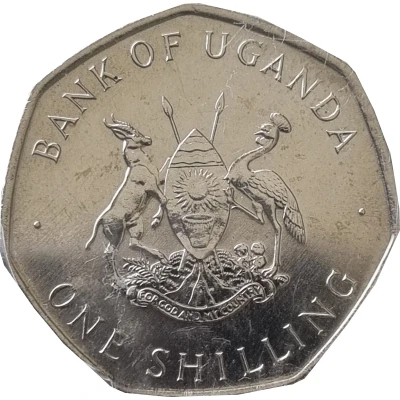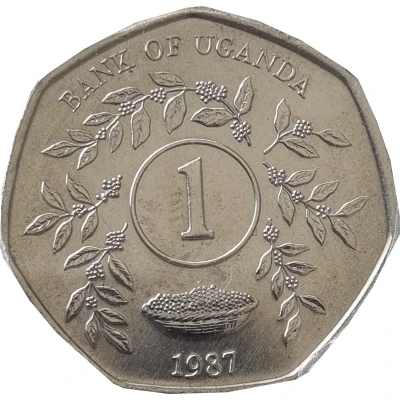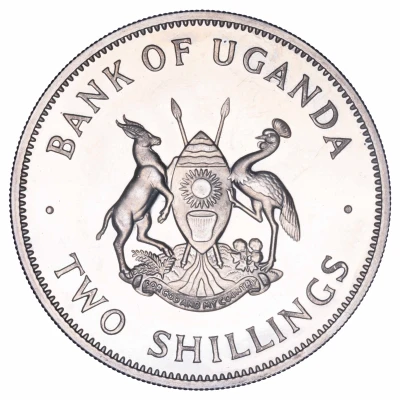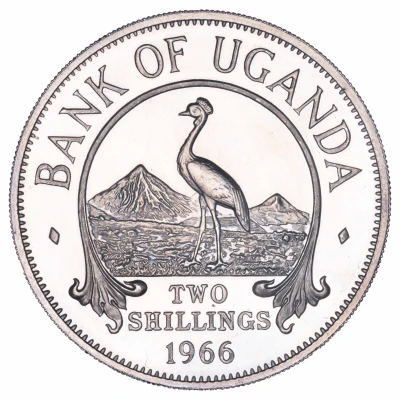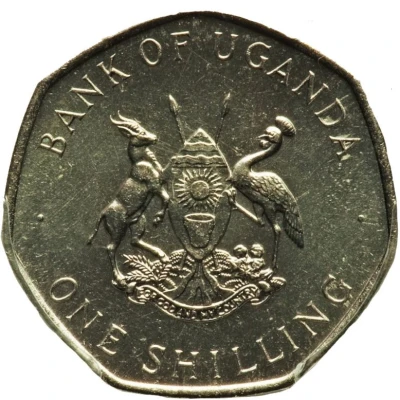
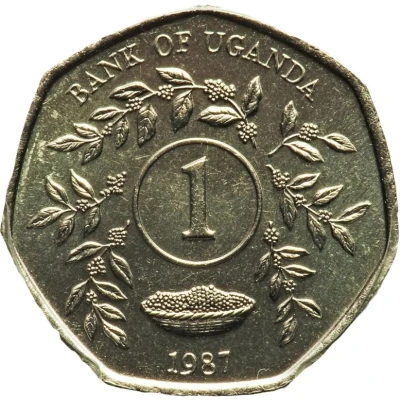

© Heritage Auctions
1 Shilling Nickel
1987 year| Nickel | - | - |
| Issuer | Uganda |
|---|---|
| Period | Republic (1962-date) |
| Type | Non-circulating coin |
| Year | 1987 |
| Value | 1 Shilling (1 UGS) |
| Currency | Shilling (1966-1987) |
| Composition | Nickel |
| Shape | Heptagonal (7-sided) |
| Technique | Milled |
| Orientation | Coin alignment ↑↓ |
| Demonetized | Yes |
| Updated | 2024-10-08 |
| Numista | N#319844 |
|---|---|
| Rarity index | 92% |
Reverse
Coffee (Coffea spp.) plants around value in circle. Bowl with coffee beans at bottom.
Script: Latin
Lettering:
BANK OF UGANDA
1
1987
Edge
Plain
Comment
In 1986, the Royal Mint recieved orders to mint Ugandan coins in five denomination: 1 Shilling, 50 Cents, 20 Cents, 10 Cents, and 5 Cents. However, months later, the order was changed. The sizes, weights, and designs all remained the same, with the only difference being the denominations that appeared on the coin. The change was as follows:1 Shilling turned into 10 Shillings.
50 Cents turned into 5 Shillings.
20 Cents tuned into 2 Shillings.
10 Cents turned into 1 Shilling.
And the 5 Cent piece was abandoned.
Many 1 Shilling and 5 Cent pieces were struck before the order was changed, but when it became apparent that a change was necessary, the coins were held. The Mint held all the coins for a couple years before they were seemingly scrapped.
Examples of the 1 Shilling and 5 Cent pieces are located in the Royal Mint Museum, as are trial strikes of the 20 Cent and 10 Cent pieces. There is a lack of information regarding any possible 50 Cent pieces.
Some sources meantion Ugandan 1 Shilling and 50 Cent pieces from 1986; however, while these unissued coins are dated 1987 and were meant to be released in 1987, they were possibly struck in 1986, meaning the corresponding denominations in this series may be the pieces those sources are talking about.
Interesting fact
The 1 Shilling (Nickel) 1987 coin from Uganda made of Nickel is a rare and unique coin, with only a limited number of coins minted. It's considered a collector's item and its value can vary depending on its condition, rarity, and demand.
